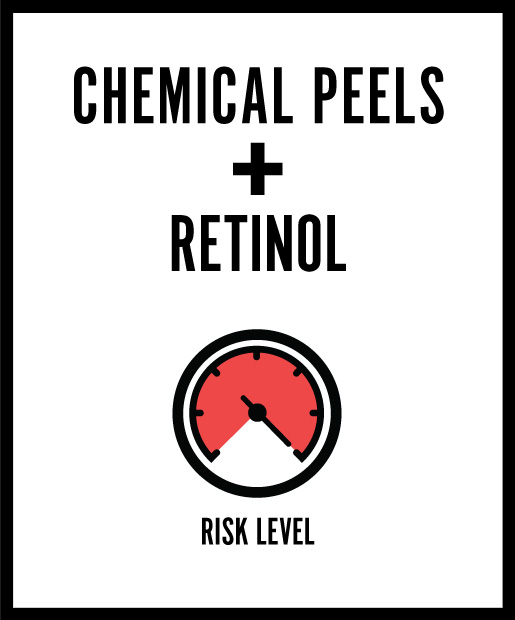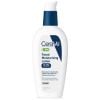Skin Care
Lethal Beauty Product CombosOK, maybe they won't kill you, but mixing some skin care products can annihilate your complexion |
Chemical Peels + Retinol = Something's Burning For the same reason you shouldn't be waxing skin that has recently been treated with retinol, you also shouldn't be getting a professional chemical peel while using retinol. While both are great for decreasing the appearance of wrinkles (and retinol has even been shown to be a great weapon in the battle against acne), Dr. Graf says that the combination of the two can cause too much irritation.
Using retinol or Retin-A (the stronger, prescription form of retinol) makes the skin barrier more penetrable, which means the ingredients in a professional-grade chemical peel will get deep into your skin, fast. While you might think that sounds like a good idea, it's actually a recipe for burning and irritation, along with physical reactions like redness, peeling, crusting, swelling and blistering. A too-deep peel can even increase your chances of getting a post-peel infection, especially if you can't resist applying makeup to cover up that persistent redness. Dr. Graf says that the process of preparing for a peel varies by patient and the type and strength of the chemicals used, so talk to your dermatologist a few weeks before the peel to get an idea of the proper pre-op procedure for your skin.
SEE NEXT PAGE: Toner + Retinol = A Waste of Money
Using retinol or Retin-A (the stronger, prescription form of retinol) makes the skin barrier more penetrable, which means the ingredients in a professional-grade chemical peel will get deep into your skin, fast. While you might think that sounds like a good idea, it's actually a recipe for burning and irritation, along with physical reactions like redness, peeling, crusting, swelling and blistering. A too-deep peel can even increase your chances of getting a post-peel infection, especially if you can't resist applying makeup to cover up that persistent redness. Dr. Graf says that the process of preparing for a peel varies by patient and the type and strength of the chemicals used, so talk to your dermatologist a few weeks before the peel to get an idea of the proper pre-op procedure for your skin.
SEE NEXT PAGE: Toner + Retinol = A Waste of Money































